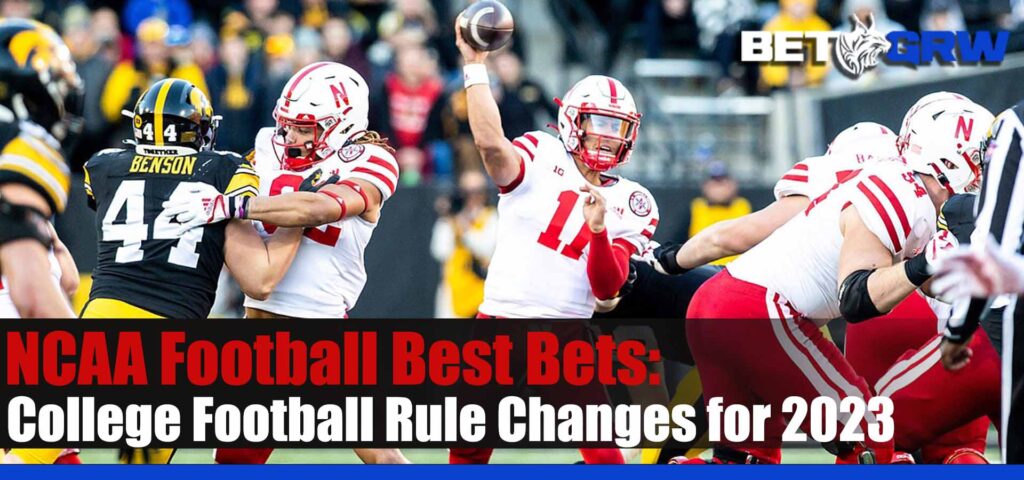
College Football Rule Changes for 2023 – As we prepare to enjoy another exciting college football season, it is crucial that we are up-to-date on any rule changes that could significantly alter the game in 2023. The NCAA has instituted several changes aimed at increasing game flow and pace while addressing specific scenarios which have caused debate in recent years. Keep an eye on the latest college football updates online. For now, here are some of the key rule changes for college football and their consequences for this season, along with what fans and players need to know.
Outlawing Consecutive Timeouts
One of the rule changes for 2023 college football season seeks to address kickers using “icing” strategies by eliminating consecutive timeouts. In the past, teams would frequently call multiple timeouts within seconds to destabilize an opponent’s kicker’s concentration and throw off their rhythm. This rule change will prohibit coaches from calling timeouts immediately following each other, forcing them to rethink their approach to icing kickers.
By prohibiting consecutive timeouts, the NCAA hopes to maintain the pace and rhythm of play. This change will add an extra strategic component to the game, as coaches must carefully consider when and how best to call timeouts and manage their clock management strategies.
College Football Rule Changes for 2023: Not Extending Quarters
2023 will see yet another rule change regarding quarter extensions. Before, when a defensive penalty occurred near the end of either quarter, an extra down would be added for untimed downs and the quarter would be extended as a result. This rule change removes the extension and instead clocks the down in the next quarter.
This adjustment seeks to promote fairness and consistency in game scheduling. By eliminating extended quarters, the NCAA hopes to prevent potential controversy over extra plays incurred due to defensive penalties. This change will create a more precise and predictable game structure, providing both teams and fans with additional benefits.
Running clock
The Running Clock Rule Change for 2023 will have an enormous effect on the pace and duration of college football games. Under this rule change, time will continue to run after an offense gains a first down unless they come within two minutes of halftime. In the past, the game clock would stop whenever a team gained a first down and restart when their offense earned one.
This rule modification aims to streamline gameplay and decrease overall game duration. By keeping the clock ticking after each first down, teams have less of an opportunity to slow the game’s momentum down. This change aims to address concerns over lengthy games and create an enjoyable fan experience.
Additionally, an exception within two minutes of half-time ensures that teams still have an opportunity to manage the clock strategically during key moments and keep suspenseful games lively while encouraging an overall faster pace.
These rule changes for the 2023 college football season are part of an ongoing effort to advance and strengthen the sport, while also addressing specific concerns that have surfaced recently. By banning consecutive timeouts and not extending quarters and implementing a running clock, the NCAA aims to enhance game flow while maintaining fairness and strategic opportunities.
Fans can expect more exciting and fast-paced gameplay, as teams adapt their strategies to take into account these rule changes. Coaches must rethink their timeout management and clock management strategies, adding another layer of complexity to the game. These rule changes aim to boost the experience for all stakeholders, the players, coaches and fans alike.
As we eagerly await the start of the 2023 college football season, it’s exciting to envision the impact these rule changes will have on the game. The NCAA’s decision to implement rule changes for the 2023 college football season reflects their commitment to improving game management and enhancing the experience for all involved. Outlawing consecutive timeouts, not extending quarters, and implementing the running clock rule are three notable adjustments aimed at reducing game length and increasing the overall flow of play. As fans, players, and coaches adapt to these changes, it will be interesting to see how they affect the dynamics of college football and whether they achieve the desired outcomes of shorter and more streamlined games.














